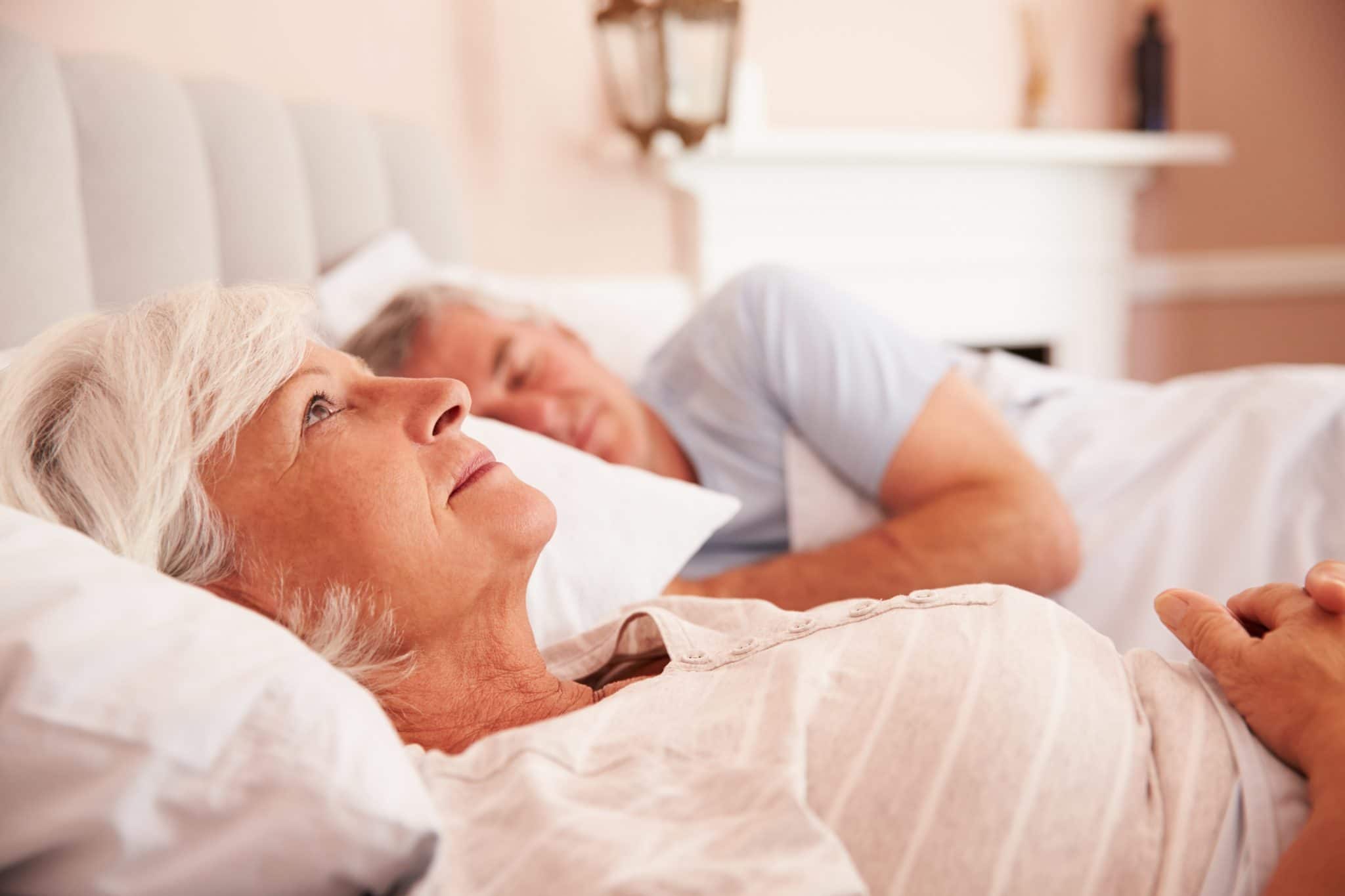
Tips for Improving Sleep in Seniors
As we age, our sleeping patterns change. Older adults commonly find that it’s harder to go to sleep and stay asleep. Contrary to popular belief, experts say seniors need just as much sleep for good health as younger adults – seven to eight hours per night. These helpful tips for improving sleep will have you waking up feeling refreshed!
Why does our sleep change as we get older?
Older adults typically experience the following changes in their sleep habits:
- Feeling tired earlier in the day/evening
- Waking up earlier in the morning
- Waking up in the middle of the night, unable to get back to sleep
- Trouble falling asleep in the first place
The majority of sleep disruption in seniors is due to illness and the side effects of medication used to treat illness.
But changes in older adults’ circadian rhythms, which control timing of bodily functions like sleep, can be responsible for feeling tired earlier as well as waking up earlier.
For example, seniors tend to go to bed sooner than younger adults, as they feel sleepier earlier in the night. But this in turn causes them to wake up extremely early, feeling groggy and lethargic as the day progresses.
Sleep cycles also change as we get older. We all experience different stages of sleep throughout the night — REM sleep (active dreaming) and periods of both light and deep sleep. Older people tend to spend more time in the lighter stage of sleep, making it very easy for them to wake up in the night for seemingly no reason at all.
Tips for improving sleep
- Don’t have caffeine past noon: Get your coffee or tea fix in early in the day. It’ll help you avoid the stimulation of caffeine that can keep you awake for as long as 10-12 hours after you ingest it. And be careful of sneaky caffeine sources like soda, dietary supplements, chocolate and some OTC pain relief medication.
- Ask your doctor about switching medications: If you suspect your medication may be causing sleep disturbances, don’t suffer in silence. Be sure to make an appointment to discuss your concerns with your physician. Everyone is unique and responds to medication differently. There may be an alternative medication available that does not have the same side effects for you.
- Exercise daily: Movement does wonders for the body and mind. Aim to get at least 15-30 minutes every day of light exercise like walking, active stretching, yoga, Pilates or going up and down stairs.
- Stop drinking liquids two hours before bed: Frequent urination is a common cause of sleep disruption. This goes double for alcohol, which is known for causing both increased urination and sleep disruption in general.
- Get lots of bright light: Bright light therapy is a proven remedy for sleep disruption and insomnia. Fortunately, you won’t likely need that living here in sunny San Diego! Make it a habit to open all your window coverings as soon as the sun comes up to maximize your bright light intake.
- Don’t nap: Although it can be tempting to snooze when you’re feeling groggy, napping during the day will make it harder for you to fall asleep come bedtime.
- Calm down before bed: Anxiety and an overstimulated mind are responsible for many instances of poor sleep. Take at least an hour to properly decompress and calm your mind before you get into bed at night. Turn off all electronic screens; close your eyes and practice taking deep, relaxing breaths; read a light book; write in a notebook or journal; listen to some calming music; or take a warm bath or shower.

Join our Senior Wellness Society for the latest news on Medicare and tips for healthy living in San Diego!
Sign up now ›Are you looking for specialized medical care in San Diego?
Our directory has more than 850 doctors in San Diego County of various specialties who are available to help you.
Find a doctor